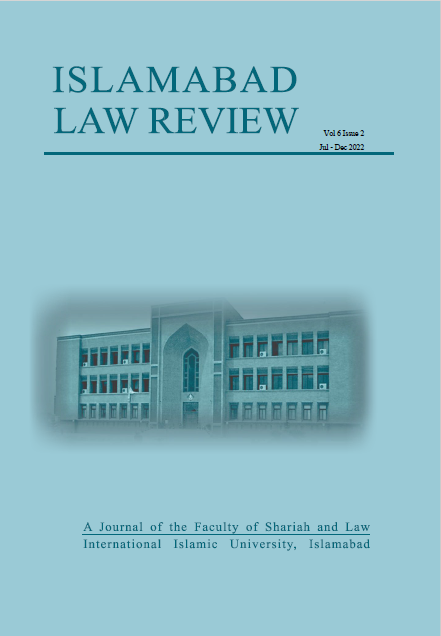An Emphatic Scrutiny of the Ḥanafī Juristic Approach on the Consent of Guardian in the Adult Muslim Women Marriage
الملخص
The marriage of an adult Muslim woman without her guardian’s consent, especially adult Muslim virgin woman, has been an issue of great concern in Pakistan. Commonly discussed under the term of ‘court marriage’, there is astonishingly no statutory law over this issue. The issue was first highlighted in the family courts in early 1980s and due to lack of any clear statutory ruling on the case, it was settled through precedential laws. The judges in various cases have apparently declared such marriages to be absolutely valid, under the Ḥanafī law. This research explores the classical Ḥanafī law and its complete juristic approach regarding the issue. The Sharīʿah analysis of of the issue reveals that courts of Pakistan have adopted the method of selective interpretation and implementation of Ḥanafī law. They have disregarded two important factors of kafā’ah (suitability of spouse) and mahr al-mithl (equal dower), which if overlooked, turn the marriages into invalid, that is, irregular ones (fāsid). The current research explores the classical fiqhī rulings on conclusion of marriage contract, its validity conditions, pre-requisites, extent of capacity of adult women, kafā’ah and mahr al-mithl, in order to clarify the ambiguities and misconceptions regarding these concepts and their consequent implementation.


